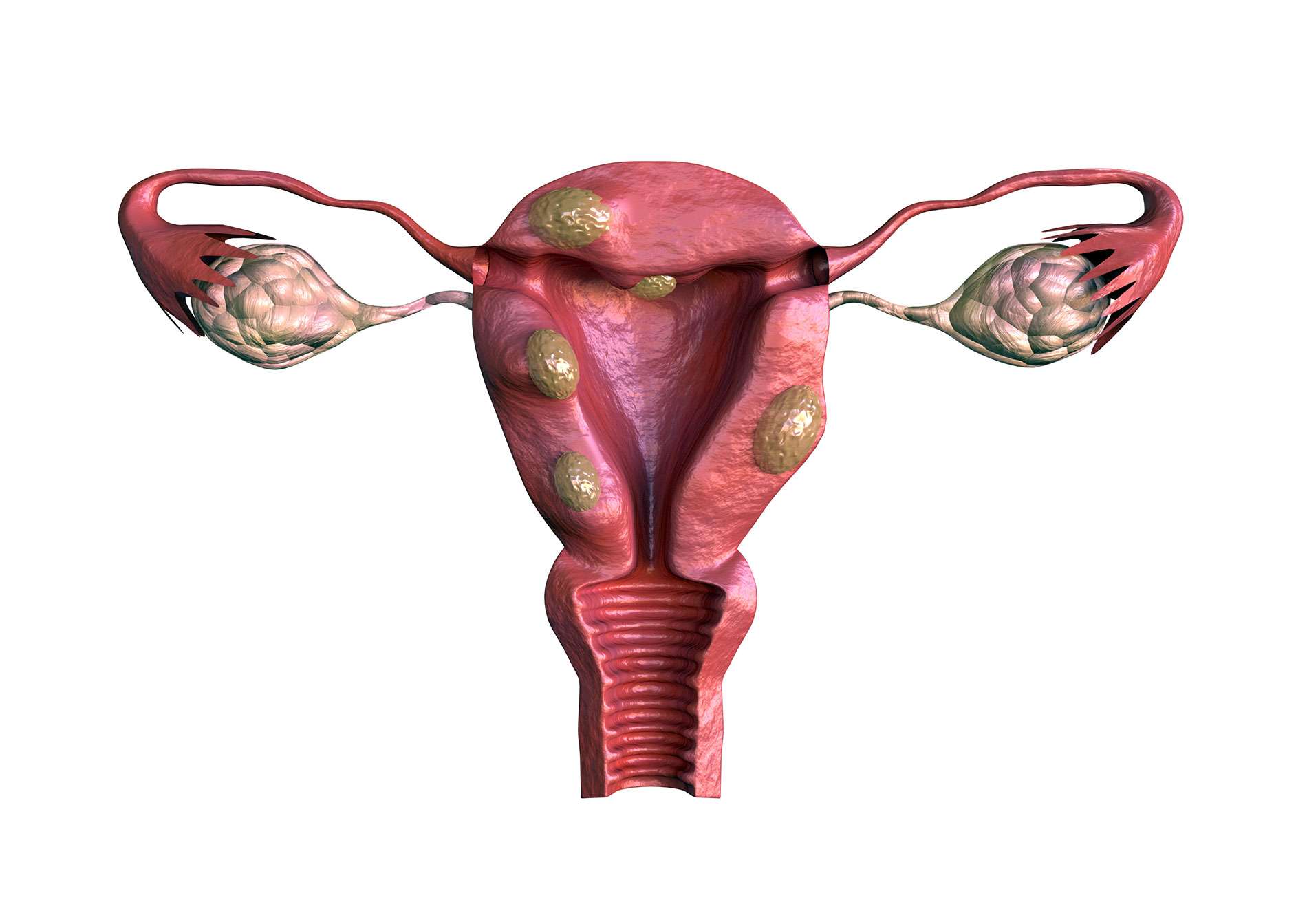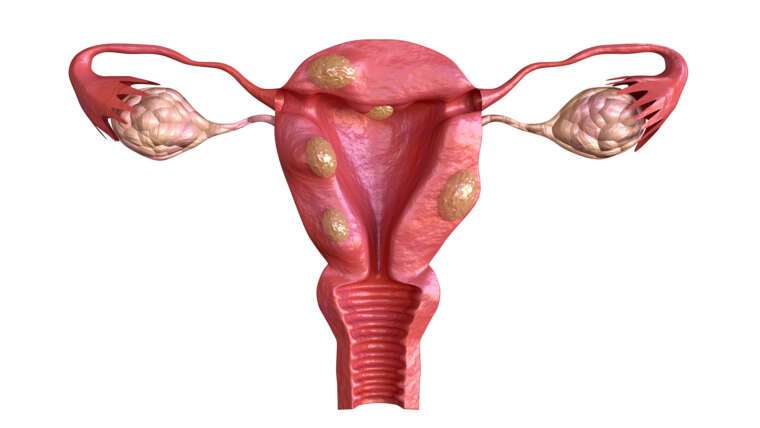Fibroids are benign, non-cancerous growths that develop in or around the womb (uterus). The growths are made up of muscle and fibrous tissue and vary in size. They’re sometimes known as uterine myomas or leiomyomas.
Although there is no clear reason as to why fibroids grow, we know that they are under the hormonal control of estrogen and progesterone.
Uterine fibroids are more common than many people believe. Between 20 and 80% of women develop them by the age of 50.
Most women will not be affected by fibroids during pregnancy, however, a certain percentage (10-30%) may develop certain complications during pregnancy.
Large fibroids can restrict the growth of the fetus by taking up space and decreasing room in the womb. They may also cause placental abruption, a condition where the placenta detaches from the uterine wall because it is blocked by the fibroids. This may lead to reduced quantities of nutrients and oxygen.

Fibroids may also affect pregnancy duration. The pain caused by fibroids may lead to contractions that result in early delivery. Additionally, due to the abnormal shape of the uterine cavity caused by fibroids, the breech position may be compromised and normal delivery may not be possible. According to womenshealth.gov, women who have fibroids are six times more likely to undergo a cesarean delivery.
If fibroids are discovered during pregnancy, the treatment may not be possible due to the risks posed to the baby. However, in extreme cases, a myomectomy may be recommended by fertility specialists during the second half of pregnancy. The procedure includes the removal of fibroids outside the uterus or from the uterine wall, leaving the uterus intact.
It is ideal to get screened for fibroids before pregnancy to reduce fertility risks. The common treatments for fibroids include myomectomy, hormonal birth control pills, IUDs and in some cases, myolysis- a procedure where energy is used to shrink blood vessels that feed fibroids.
If you experience symptoms of fibroids (heavy and painful periods, anemia, pain during sexual intercourse, low back pain and frequent constipation), be sure to speak to our fertility specialists at Solo Clinic.
Schedule your next appointment on our website or call the clinic on 9673076545.
Don’t forget to follow us on Facebook, LinkedIn and Instagram for more news and updates! For more information on infertility, visit our explanation page



